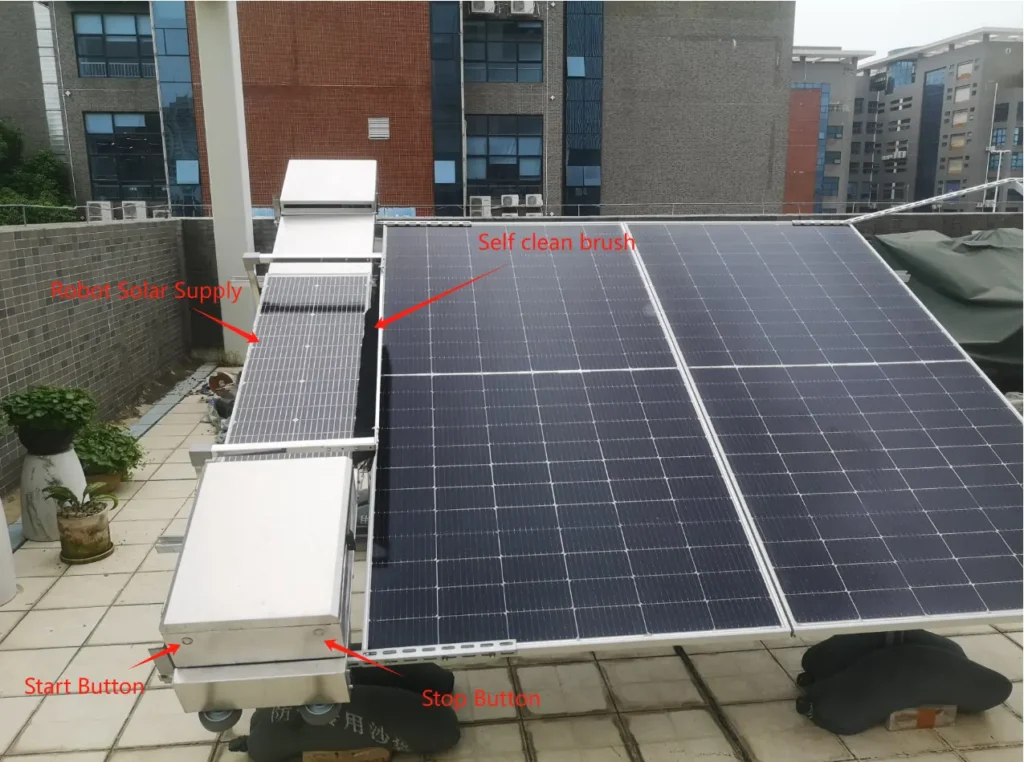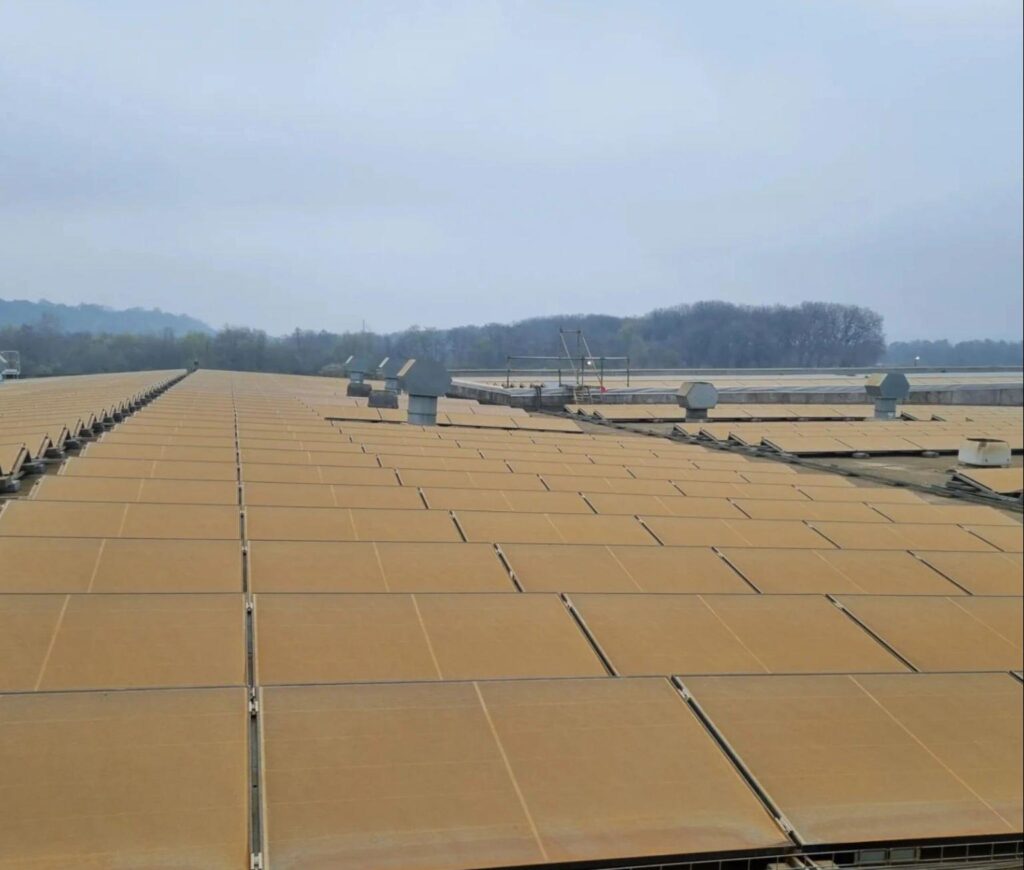Solar Panel Cleaning system in Bangladesh
With the rapid development of solar power generation projects in Bangladesh, the demand for photovoltaic plant maintenance is increasing. Climate conditions such as high temperatures, dust, and rainy seasons lead to dust and dirt accumulation on solar panels, reducing power generation efficiency (which can typically lose 10%-65%). Traditional manual cleaning methods are costly, risky, and inefficient, while solar panel cleaning robots have become the ideal solution in the Bangladeshi market due to their intelligence, efficiency, and energy-saving characteristics.

1. Core Demands in the Bangladeshi Market
- Environmental Adaptability:
- Dusty Climate: High levels of dust in the dry season require frequent cleaning (recommended daily).
- High Temperature and Humidity: The robots must withstand extreme temperatures ranging from -30℃ to 70℃, with an IP65 protection rating for rainy, humid environments.
- Complex Terrain: Robots need to have an obstacle-crossing capability of ≤22° to adapt to slopes in rooftop or ground-mounted power stations.
- Cost-Effectiveness:
- Long-term cost reduction: For a 1MW plant, manual cleaning costs can reach $81,000 to $654,000 over 15 years, while robots require a one-time investment of only $10,000 to $20,000, saving over 90% of expenses.
- No need for water resources: Dry cleaning mode is suitable for water-scarce areas, preventing potential damage from washing.
- Safety and Efficiency:
- Avoiding high-altitude operation risks: Manual cleaning poses risks of electric shock and falls; robots enable unmanned operation.
- High cleaning efficiency: Spiral brush speeds of 60-120 RPM, achieving a cleaning rate of over 99% in a single session, covering more than 1000㎡ daily.

2. Technical Advantages of Cleaning Robots
- Intelligent Management Features:
- Remote Control: Supports 4G networks, App, and cloud monitoring, providing real-time work reports and fault diagnostics.
- Automated Scheduling: Optimizes cleaning plans based on weather and environment (e.g., reduces frequency during rainy seasons).
- Self-Cleaning System: Automatically cleans the brush head after tasks to extend equipment lifespan.
- Localized Technical Support:
- Customized Services: Provides tailored solutions for the layout of Bangladeshi power stations (e.g., cleaning distance of 1600-3000m).
- Lifetime Maintenance: Software upgrades and local team support for installation and operational management throughout the equipment’s lifecycle.
- Environmental Protection and Sustainability:
- Zero Water Consumption Design: Dry cleaning mode reduces resource wastage, aligning with sustainable development goals.
- Extended Component Lifespan: Regular cleaning prevents dust corrosion, enhancing silicon panel lifespan by over 10 years.

3. Application Scenarios and Case Suggestions
- Large Ground Power Stations:
Suitable for desertification areas in northwest Bangladesh or centralized power plants in industrial zones, with robot clusters capable of covering gigawatt-level projects. - Rooftop Distributed Power Stations:
Lightweight design (main unit 15kg) is suitable for urban commercial buildings or rural rooftop power stations, avoiding hidden cracks caused by human foot traffic. - Highly Polluted Areas:
In industrial zones or around transportation hubs, frequent robot cleaning can combat stubborn stains such as coal smoke and oil dirt.
4. Market Prospects and Cooperation Opportunities
The Bangladeshi government aims to increase the share of renewable energy to 40% by 2030, and cleaning robots will be a key tool in achieving this goal. Enterprises can tap into the market through the following methods:
- Government Cooperation: Participate in photovoltaic poverty alleviation projects, providing an integrated solution of “equipment + services.”
- Localized Production: Reduce tariff costs and establish an after-sales network in collaboration with local agents.
- Data Value-Added Services: Utilize operational data collected by robots to optimize power generation efficiency and develop derivative businesses such as carbon trading.
Conclusion
Solar panel cleaning robots are not only a technological upgrade but also an economic choice for energy transition in Bangladesh. Through intelligent and cost-effective operation modes, the country can maximize its solar energy potential, contributing to the spread of green energy and the achievement of carbon neutrality goals.